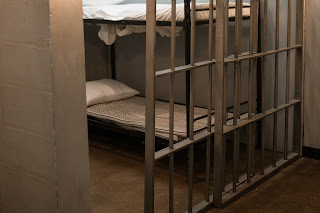Florida’s life-without-parole law reform
Florida’s life-without-parole law reform
Here’s a deeper dive into specific aspects of Florida’s life-without-parole (LWOP) laws and reform efforts:
1. Juvenile LWOP Reforms After Miller and Graham
Florida initially resisted retroactively applying the Supreme Court’s rulings (Miller v. Alabama, 2012; Graham v. Florida, 2010), leading to litigation:
Atwell v. State (2016) – Florida Supreme Court ruled Miller must apply retroactively.
SB 7062 (2017) – Created resentencing hearings for juvenile LWOP cases, allowing judges to impose 25-to-life sentences instead of automatic LWOP.
Jones v. Florida (2020) – Florida Supreme Court reversed course, ruling that Miller did not require jury unanimity for resentencing, angering reform advocates.
Current Status:
~200+ juvenile lifers have been resentenced since 2017, but many remain imprisoned.
Prosecutors can still seek LWOP for juveniles if they argue the defendant is "irreparably corrupt."
2. Attempts to Expand Parole or Resentencing
Florida abolished parole for most crimes in 1983, but efforts have been made to reintroduce it for certain cases:
HB 1037 (2023) – Proposed parole eligibility after 20 years for nonviolent offenders, but died in committee.
"Second Look" Bills – Advocacy groups push for judicial review after 15+ years, but no bill has gained traction.
Felony Murder LWOP Challenges – Some lawmakers argue Florida’s strict felony murder rule (allowing LWOP for accomplices who didn’t kill) is unjust, but no legislative changes yet.
Obstacles:
Florida’s political climate favors tough-on-crime policies (e.g., Gov. DeSantis signed a law in 2023 requiring 85% time served for violent crimes).
Prosecutors and victim advocacy groups oppose LWOP reforms.
3. National Influence & Future Possibilities
State Trends: Michigan, California, and D.C. have rolled back juvenile LWOP; Florida could follow if political dynamics shift.
Federal Pressure: The EQUIP Act (proposed in Congress) seeks to incentivize states to end juvenile LWOP, but Florida hasn’t embraced it.
Public Opinion: Growing bipartisan support for sentencing reform (e.g., Florida’s 2018 Amendment 4 restoring voting rights) suggests potential for future LWOP changes.
Key Organizations Pushing for Reform
Florida Rights Restoration Coalition (FRRC) – Advocates for second-chance policies.
The Sentencing Project – Pushes for LWOP reforms nationally.
Innocence Project of Florida – Highlights wrongful convictions in LWOP cases.
Takeaway
While Florida has made limited changes due to court mandates, broader LWOP reforms face stiff resistance. Juvenile sentencing remains the most contested area, with ongoing legal battles. For major shifts, electoral changes or federal intervention may be needed.




Comments
Post a Comment